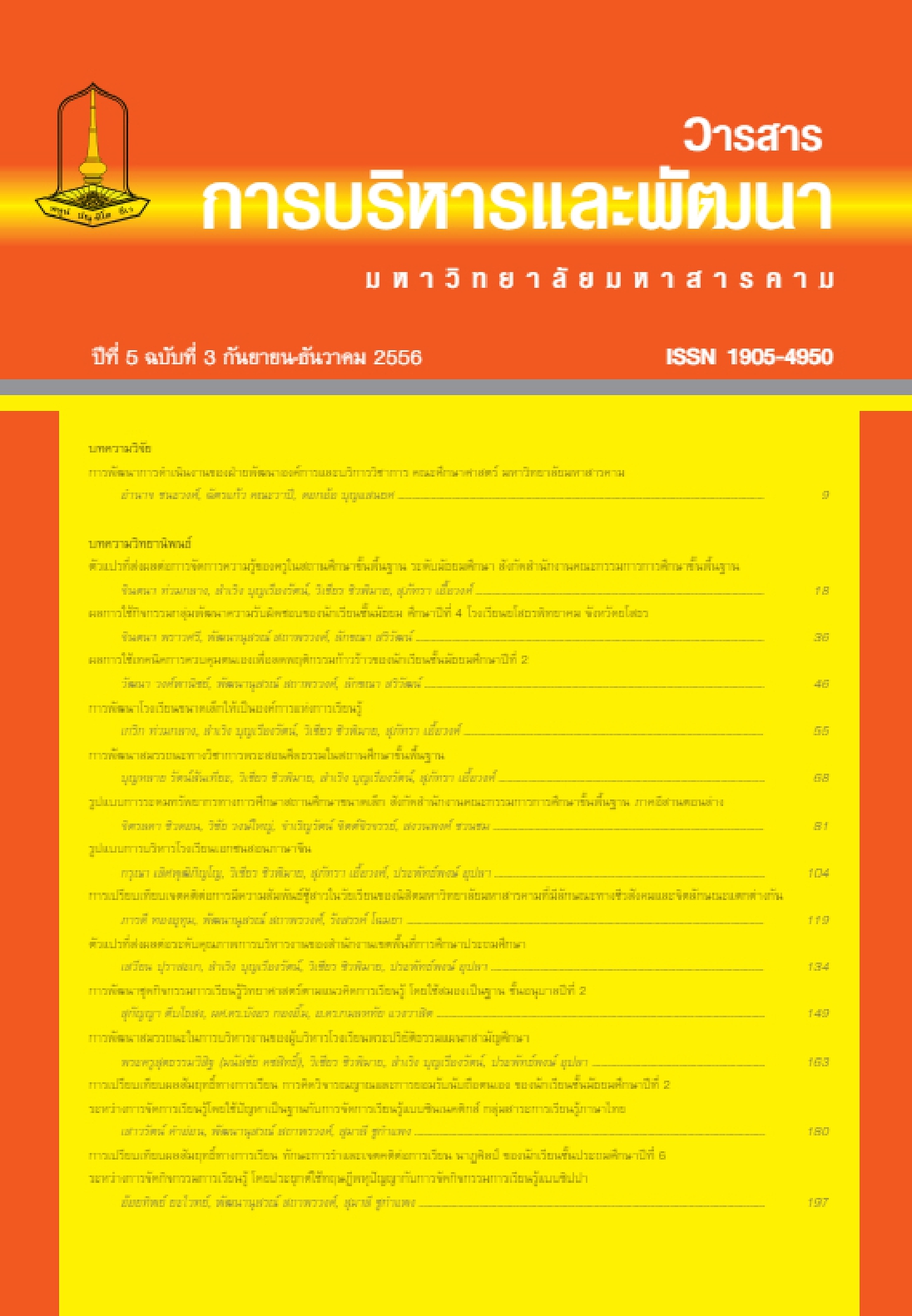Developing a Science Learning Activity Package Based on Brain-Based Learning for Kindergarten 2
Main Article Content
Abstract
Organization of experience in developing a science learning activity package based on brain-based learning is organization of activities which have students really practice and experiment and have interactions with class peers. Which are regarded as student development. The author developed a package science learning based on brain-based for Kindergarten 2. The purposes of this study were to: 1)Compare science process skills for Kindergarten 2 based on brainbased lesrning between before and after learning, and 2)examine outcomes of using the science learning activity package based on brain-based learning. The sample used in this study consisted of 18 Kindergarten 2 children at Wat Hem Sung School, Tambon Thong Lang, Amphoe Chakarat, The office of Nakhon Ratchasima Primary Educational Service Area Zone 2, obtained using the cluster random sampling technique.
The results of the study were as follows:1. The students who learned using the science learning activity package based-on brain-based learning increased every science process skill from before learning.
2. The organization of experience using the activity package could cause every these science process skills of students to increase: observing skill disiminating skill quantity showing skill, Communicating skill, inferring skill and spatial skill.
Downloads
Article Details
References
Educaton, (2005). Ministry of. Early Childhood Educaton Curriculum 2003. Bangkok: Kurusapa Lardprao Printing House.
Curriculum and Instruction, Department (1977).A Pre-Primary Education Handbook 1977 (age 3 – 6 years). Bangkok: Department of curriculum and instruction.
Decha, yaowapa. (1999). Education Provision for Early Childhook Bangkok: AP Graphic Design.
Kuanhawej, Boonkua. (2530). Educational Novation. 3rd printing. Bangkok: Charoenwit printing.
Khaemani,Titsa. (2010). 14Teaching Methods for Professinal teachers. 7ht printing.Bangkok: Chulalongkorn University.
Suwatthanapaiboon, Somchit. (1992). Nature of Science. Bangkok: Department of Curriculum and instruction, Faculty of Education Srianakharinwirot University Prasarnmitr.
Wat Hem Sung School. (2010). A Document of Report on Outcomes of Evaluating Learning Quality 2010. Nakhon Ratchasima: Academic affairs administrative group.
Wongratana, Chusi and Naiyapat, Ongat. (2010).The Pattern of Experimental Research and Analytical Statistic of Basic Concepts and Methods. Bangkok: The House of Publishing Chulalongkorn University,
Thongprasit, Pimphan. (2005). A Study of Multiple Intelligence of Early Childhood Children Who received Organization of Activity using Science Process. Master of Education Thesis. Bangkok: Srinakharinwirot University.
Chunlanan, Somdet. (2010). Developing Science Process Skills For Early Childhood Based-On Hyscope. M.Ed. Independent Study, Mahasarakham University.


